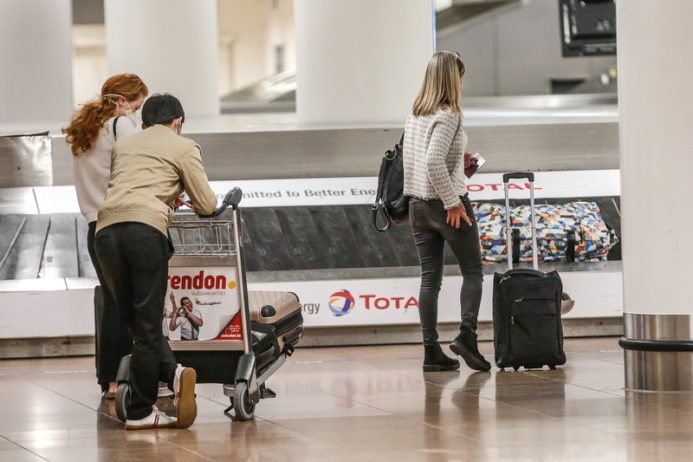From tomorrow (Saturday), all travellers returning to Belgium will have to complete the government's Passenger Locator Form before arrival in the country.
From 1 August, anyone travelling abroad for more than 48 hours has to fill in the Passenger Locator Form online, before returning to Belgium, regardless of the means of transport used.
The obligation also applies to foreigners who come to Belgium for at least 48 hours, clarified Gino Claes of the Federal Public Health Service during a press conference on Friday.
"Passengers arriving from areas where an epidemic is imminent are required to fill in a form containing various details. The aim is to be able to contact them quickly if someone travelling with them turned out to be ill," Claes said.
"The form can be filled in between 2 days and a few hours before departure, but not three or four days in advance," said Claes, who added that it only takes a few minutes.
"You will have to fill in your personal data, the country you stayed in, the number of days you travelled for, things like that," Claes said. "If you are returning by plane, your flight number and seat number will also be requested."
After completing the form, you will receive a QR validation code by email. "This is proof that you have completed the form correctly. Returning air travellers must show this QR when boarding. If you do not, you will not be able to board," Claes said.
Related News
- Norway confirms quarantine on arrivals from Belgium
- New restrictions against Belgian travellers will 'without a doubt' be implemented
- Non-essential trips abroad should be postponed, WHO says
Filling in this form is required for all travellers, regardless of the colour of the zone you travelled to, except for people who have been abroad for less than 48 hours or those who will not be staying on Belgian territory for 48 hours.
"This exception, however, does not apply to people travelling by plane or boat. If you return from abroad by plane or boat, you must fill in that form, regardless of how long you are in our territory," Claes added.
People arriving in Belgium who are considered a risk, meaning if the area they came from is a red zone, will receive a text message asking them to go into quarantine and contact a doctor, to get tested. "You will then receive a second text message, with a coupon to get a test," Claes said.
If the test is negative, nothing happens. If the test is positive, the regional health authority will contact you to follow up on your contacts.
"If you arrive by public transport, plane, train, boat or bus, and someone on the same transport tested positive, the contact details of all people on that same transport will be sent to the authorities, who will then be able to organise the contact tracing quickly," Claes said.
The data will be kept for 28 days by the Federal Public Health Service. "I can guarantee that they will only be used if necessary," said Claes. "After 28 days, they will be destroyed in accordance with the general regulations for the protection of personal data."
"Additionally, I would like to point out that filling out the form, isolating yourself and being tested when you come back from a red zone, are all mandatory procedures," Claes said. "These measures are binding. They are fundamental if we are to contain this epidemic."
The form is available in Dutch, French, German and English, on the websites of the Federal Public Services for Foreign Affairs, Immigration Affairs and Public Health.
Maïthé Chini
The Brussels Times

